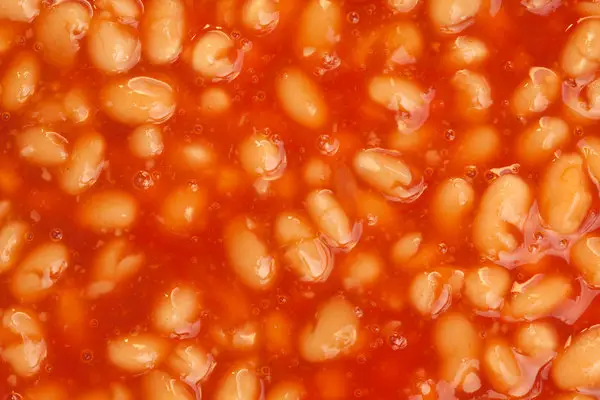Looking for an easily available and amazing source of protein that will help you lose weight?
Wondering if beans will do the trick? Or will it be a miss?
Beans are an inexpensive, plant-based protein source that provides many health benefits.
People across the globe have been consuming beans for centuries and have incorporated them into many of their traditional dishes.
Also commonly called legumes, or pulses, beans are the edible seeds derived from plants that belong to the family Fabaceae.
Beans are very convenient because they can be cooked fresh or dried for storage that can last for years.
Beans are exceptionally filling and are easily available.
These qualities made the common bean, native to the Americas, a staple in the locals’ diet.
Beans are used to produce flour, curdled into tofu, and fermented into miso, tempi, and soy sauce.
Common bean varieties consumed in the USA include Pinto, Navy, Black beans, and, recently, chickpeas as well.
Nutrient Contents of some common Bean Varieties
(Per 100g)
Energy 143 kcal
Protein 9.01 g
Fats 0.65 g
Carbohydrate 26.2 g
Fiber 9 g
Water 65.7 g
Energy 132 kcal
Protein 8.86 g
Fats 0.54 g
Carbohydrate 23.7 g
Fiber 8.7 g
Contents
Are beans good for losing weight?
Beans are a great addition to your weight-loss diet, as evidenced by several scientific studies.
The best quality of beans is their low fat (only 3% of total calories) and high fiber and protein content.
Both protein and fiber are notably helpful for weight loss.
Beans are packed in fiber, plus, the valuable amounts of potassium, magnesium, iron, and copper in them reduce appetite and in weight loss.
Beans are loaded with soluble fiber that combat gut inflammation.
This aids in weight loss.
Research shows that people consuming beans were less likely to be overweight and had small waist sizes.
Hummus, a middle eastern dip made from chickpeas, is highly nutritious that can aid in weight loss, especially when paired with a complex carb snack.
So the next time you’re a little hungry and looking for a guilt-free snack, try hummus.
It has been observed that people who regularly eat hummus experience decreased sugar cravings and improved satiety.
Do beans burn belly fat?
Yes, beans can help you manage weight and burn belly fat.
Consumption of certain beans has been linked with anti-obesity effects, with an emphasis on lowered abdominal obesity.
White beans have a constituent phaseolin, also known as “starch blocker” which is a bioactive compound known to delay digestion and slow carbohydrate to fat conversion resulting in weight loss and reduced waist circumference in obese individuals.
Do beans increase weight?
Although beans have very little fats in them, they are still very energy-dense.
Therefore, eating a disproportionate amount of beans can make you gain weight.
Another reason beans can make fat depends on how they are cooked.
Beans prepared in excessive amounts of fats, usually through frying, can add unnecessary calories to a wholesome meal.
Are beans fattening for you?
As with any food, beans can increase your weight if eaten in large quantities and prepared using lots of unhealthy fats.
Why should I eat beans?
Well, beans boast a myriad of health benefits.
Beans are highly nutritious and packed with proteins, fibers, and several micronutrients and antioxidants that have been associated with better overall health.
Significant amounts of zinc, copper, manganese, selenium, and vitamins B1, B6, E, and K are found in beans.
Polyphenols are present in beans as well and have potent antioxidant effects.
Beans can also prevent iron deficiency anemia, especially in people who do not consume meat or animal product.
The blood sugar-lowering effects of beans have been particularly well documented in treating Type-2- diabetes.
Beans are a low GI food, so they raise blood sugar levels slowly.
Trials have shown that people who replaced red meats with beans in their meals had lower fasting glucose levels and were overall more successful in managing their blood sugar.
Consuming beans promotes heart health, particularly by raising HDL levels and lowering inflammation, blood pressure, and elevated LDL or bad cholesterol levels.
If you struggle with gut issues, beans are a prebiotic food, which simply means that they provide nutrition to the friendly bacteria in your gut.
They enrich the gut flora, which has a tremendous impact on your metabolic health.
They also lower the risk of cancer, especially in patients with a history of colorectal polyps and cancer.
Reduced mortality rates have been observed when diets included large intakes of beans, especially in countries such as Japan and Greece, where bean consumption was as high as 85g/day.
What happens if I eat too many beans?
Beans have somewhat of a negative image for some people, notably for the bloating or flatulence that can be experienced after eating beans.
This is because of the oligosaccharides in beans that are difficult to digest.
Undercooked red beans host a toxin called phytohemagglutinin which may cause gastric disturbances, nausea, and stomachache.
Nearly all beans contain phytic acid, which hinders the absorption of minerals and nutrients.
However, preparation methods such as sprouting beans, soaking and discarding soaking water before cooking, and cooking in water with a more alkaline pH can reduce oligosaccharides and other toxic contents of beans.
If contaminated during farming or processing, canned beans may contain large quantities of nitrates and nitrites.
Excess nitrates and nitrites may disrupt blood and oxygen flow in the body
Despite these reservations, beans are perfectly safe to eat when prepared using proper measures.
Beans are super nutritious and a perfect supplement to your weight-loss diet.
Whether eaten as baked or added to your favorite salad or simply made into hummus to be enjoyed with whole wheat crackers, beans are an excellent low-calorie add-on that has an overwhelming list of pros and barely any cons!

